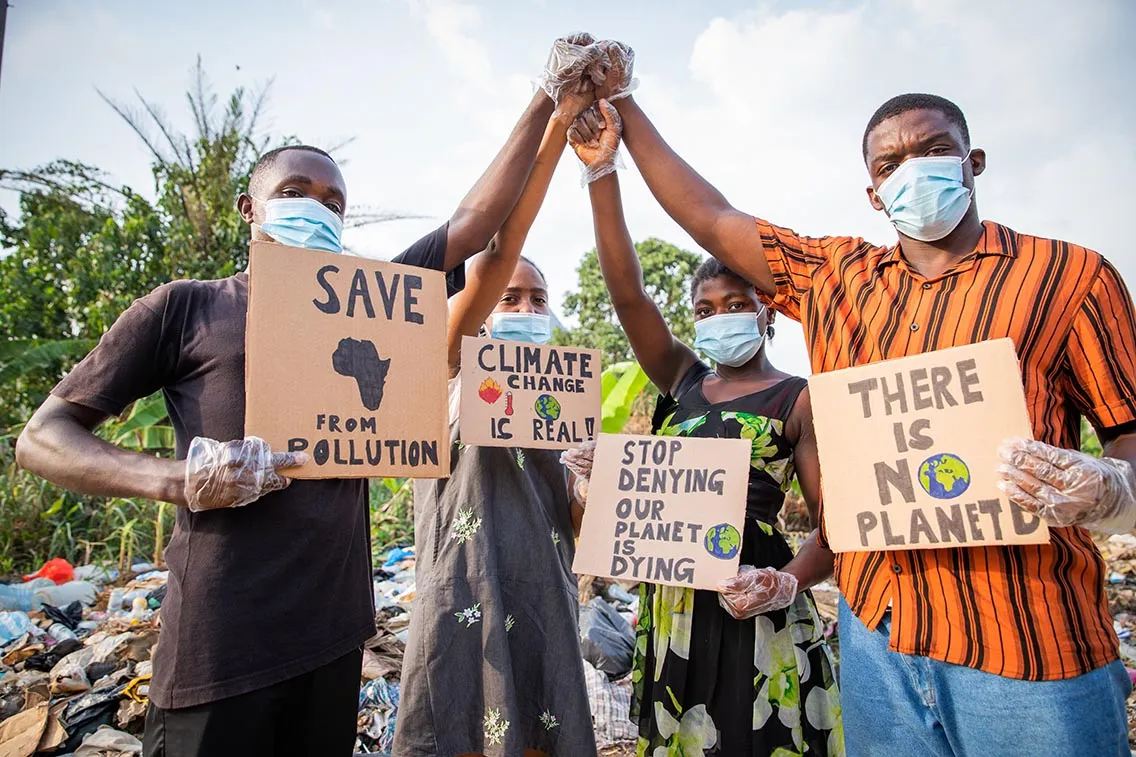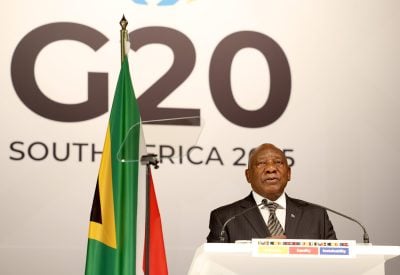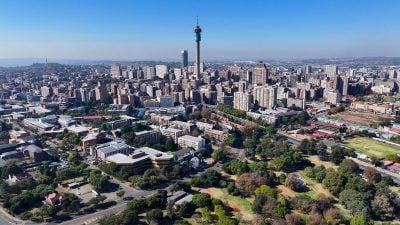As a continent that is home to some of the most climate-vulnerable countries in the world, the African perspective must be a key consideration in agreements made and action prioritised.
According to the World Meteorological Organization, 2023 was the warmest year on record globally, and it is predicted that 2024 will follow the same trend, yet climate action still lags behind targets. Unsurprisingly, the world now faces more than a 50% chance of global temperatures reaching or surpassing the 1.5 degrees warming limit if emissions are not curbed. These factors make a strong case for an intensified global climate action that adopts a people-first approach.
Global warming is proving to be a significant existential threat to all forms of life, demanding urgent and intentional climate action. For a while, the topic of climate finance has been a contentious one among decision makers and global players, yet without adequate finance, we cannot win the battle against this crisis. The transition to a low-carbon global economy requires sustained massive capital injections, while accelerating investments into resilience-building and adaption initiatives. Financial resources to facilitate response must therefore be accessible to all, affordable and available when needed.
It is well-known that Africa is disproportionately affected by climate change, despite being one of the continents that contributes the least to this phenomenon. The continent is home to seven of the ten most climate-vulnerable countries in the world. About 78% of the region’s population relies on agriculture for their livelihoods, a sector that is particularly impacted by climate change. Temperatures in the region are rising, and too much or too little rainfall is becoming the norm, challenging farming activities, and fuelling extreme food insecurity.
The climate crisis places multiple demands on countries that must respond to an increasingly warming and hostile world. Evidence of multiplied and more intense climate-induced events is all around us, playing out in the loss of lives and livelihoods, massive economic costs, devastation to critical infrastructure and much more. Climate change is also cross-cutting, touching on all aspects of life, accelerating existing crises such as food insecurity, disease threats and conflict.
To avoid the worst impacts of climate change, the scale of climate finance needed to support action is massive, estimated in the trillions globally. In fact, USD 4.3 trillion is needed a year by 2030. This figure is predicted to jump to USD 10 trillion each year from 2031 to 2050 if warming continues.
The story is no different for Africa. According to the UNFCC, developing countries alone require at least USD 6 trillion to implement their National Determined Commitments (NDCs), not to mention the costs in loss and damages as a result of climate change. Climate-induced events in Africa have increased steadily from a low of 40 in 2014 to 55 in 2023. Over the last 3 decades, loss and damage from climate change in Africa has been over USD18 billion. In 2023 alone, the continent lost 16 000 lives to climate change and experienced USD 8 billion in damages. The cost of response is expected to exceed $2.3 trillion between 2020 – 2030.
These facts underscore the urgent need to reform the global financial architecture to reflect today’s reality, make it more inclusive and effective. Efforts to streamline the financial landscape must seek to stabilise the international system and eliminate the frustrations that have hindered access by the most vulnerable countries. Not only should financial instruments be easy to access but they must accommodate the needs of all stakeholders and offer a level of predictability.
The 2023 Intergovernmental Panel on Climate Change (IPCC) report underscored the need for urgent systemwide transformations to secure a net-zero climate-resilient future. In its pursuit of sustainable development, Africa has a great opportunity to transition to a green economy on all fronts. For a region that heavily relies on agriculture, there is no doubt that heavy investment into smart agriculture is a priority, leveraging research and development and optimising the use of technology. The same efforts are also necessary to transform all other sectors.
While there has been notable increase in the amount of climate finance available, globally, the funding gap remains well below the scale required to facilitate significant momentum in action. Resource mobilisation has been challenging and disbursement has been slow. This is particularly true for developing nations that continue to face access and affordability challenges. To address some of the frustrations experienced, efforts must be made to ensure a non-monopolistic approach to climate finance to ensure a consistent flow of resources.
The African case is unique and requires equally unique solutions that can be customised to the regional context to adequately support National Development Strategies. Africa must develop its own financial instruments to promote domestic resource mobilisation tailored to the African context. A diversified financial model that draws from public and private sources is necessary to bridge the gap between traditional climate finance and support 21st century needs.
The journey to climate response can easily be overwhelming and requires collaboration on many fronts. As the biggest multilateral institution on climate finance, the World Bank is committed to dedicating 45 percent of its annual funding to climate change, to be equally split between adaptation and mitigation, by 2025. The World Bank can use its convening power, to prioritise adaptation and resilience, especially in Africa, including by building early warning systems. These priorities are in line with the new mission and vison of the Bank to eradicate extreme poverty and foster shared prosperity on a liveable planet.
Furthermore, the upcoming UNCCD COP15 provides an opportunity to address the urgency of drought and land degradation. We need a global approach to address the intertwined challenges of food insecurity, illegal migration, and other climate related social and political challenges. In this respect, mobilising necessary capacities and financial resources for the implementation of the Great Green Wall for the Sahara and Sahel Initiative will be a good investment for both climate and people.
Finally, Instruments such as the soon-to-be-launched Loss and Damage Fund will certainly go a long way to support one aspect of response, but solutions must be complementary and all encompassing. There is an opportunity to strengthen the global preparedness to respond by improving all aspects of finance to ensure efficiency and effectiveness in climate action.


 Sign in with Google
Sign in with Google 



